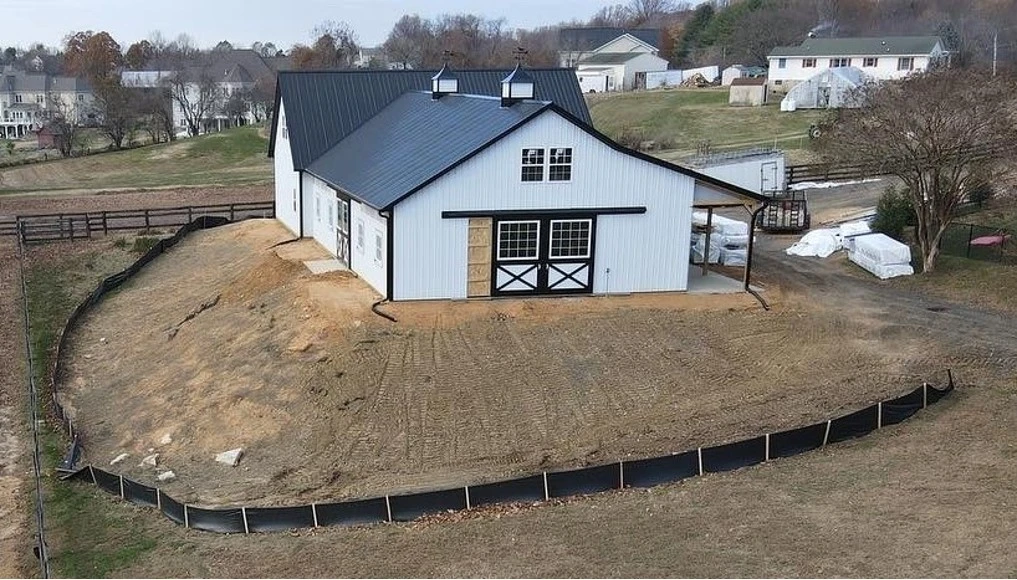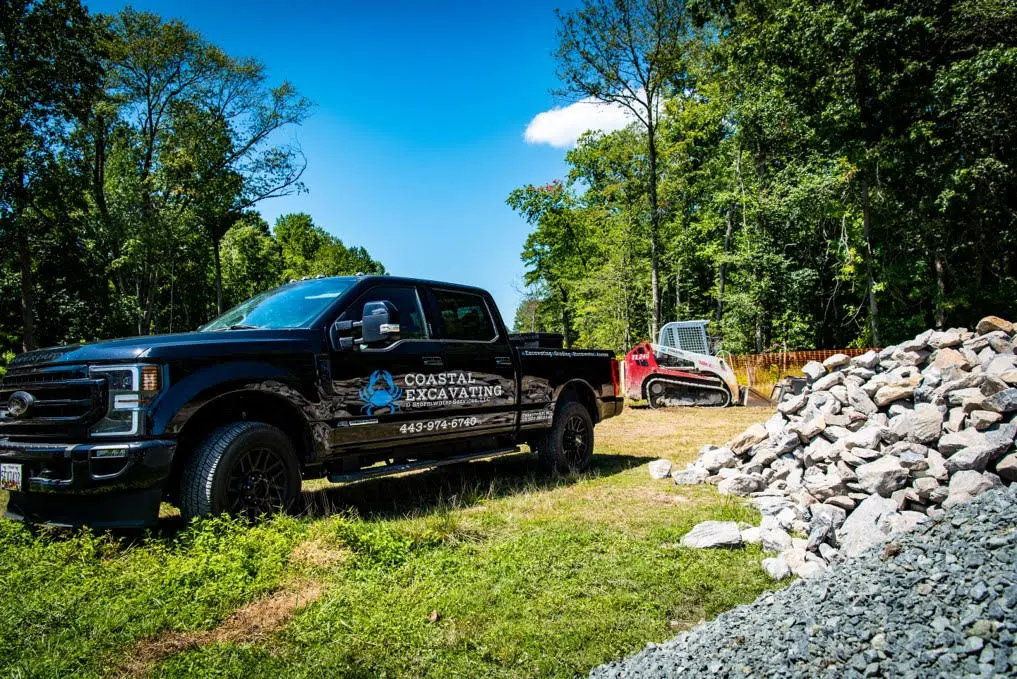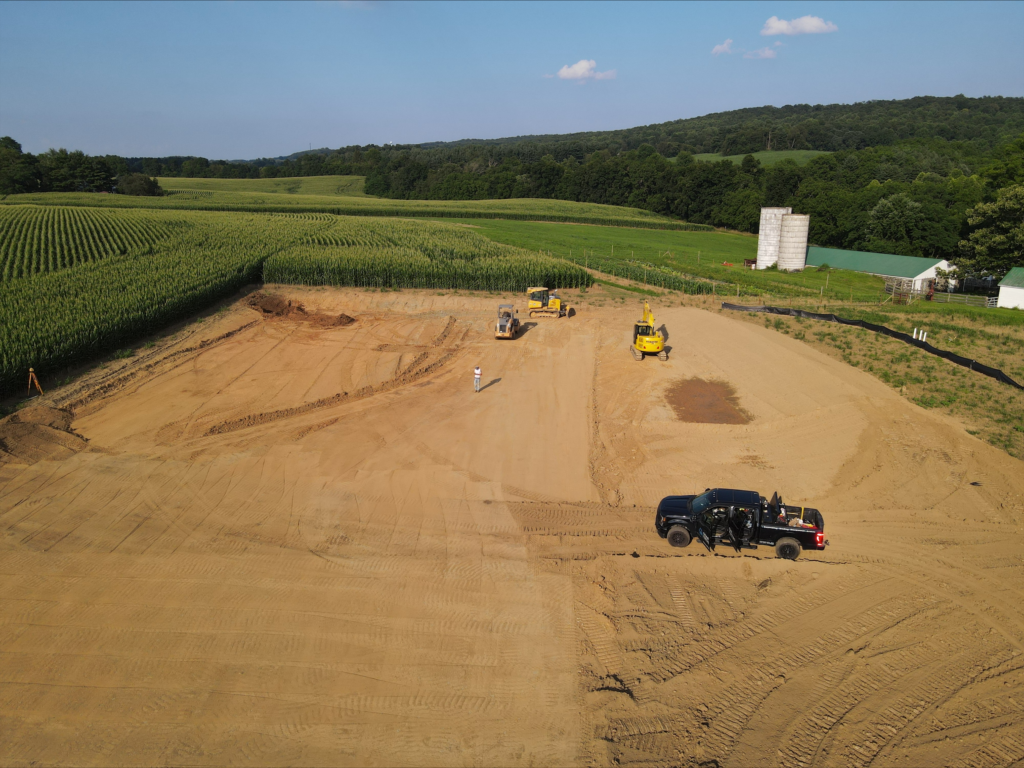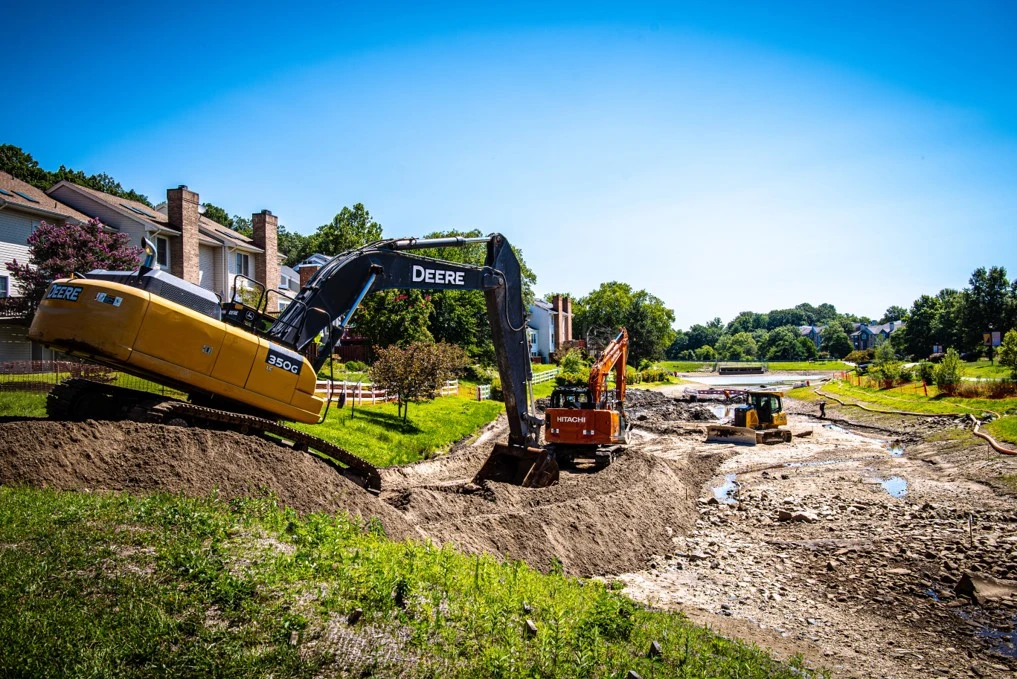EXCAVATION CONTRACTOR BLOG
Site Development Near Me – Top Tips for Successful Commercial Site Development Projects
Posted 9/18/2023
(Site Development Near Me) – Commercial site development projects require extensive planning, coordination, and expert execution. When looking for site development near me, it’s crucial for delivering quality results on-time and on-budget. This comprehensive guide covers everything you need to know about commercial site development services.
Commercial site development service transforms raw land into functional spaces suitable for commercial buildings and facilities. It involves clearing, excavating, grading, installing underground utilities, building roadways, pouring concrete slabs, and more. Proper site development lays the groundwork for constructing commercial structures.
Hiring a professional full-service site development company provides access to the latest equipment and highly skilled personnel. They have the expertise to handle complex, large-scale projects exceeding client expectations. Read on to learn what makes an excellent site development contractor and how to have a successful site development project.
Looking to learn more about site development? Check out a few of our other posts here:
Maximizing Land Use Efficiency through Effective Site Development
The Importance of Site Development Planning in Construction Projects
Designing Accessible and User-Friendly Sites through Site Development

What Services Does A Commercial Site Development Company Offer?
(Site Development Near Me) – Here are some of the key offerings to look for:
- Land clearing and demolition – Removes existing vegetation, trees, old structures and debris. This prepares the site for new construction. Land clearing crews will clear brush, trees, stumps, rocks, and existing foundations or pavements. Proper demolition and disposal of obsolete structures is part of a complete site preparation package.
- Earthwork and grading – Mass land excavation and ground shaping to planned elevations and angles. Earthwork contractors have extensive experience moving and shaping tons of dirt efficiently. Grading prepares building pads, creates access roads, shapes stormwater basins, and more. Quality grading is critical for proper drainage.
- Erosion control – Installs silt fencing and other measures to prevent erosion. Erosion control is vital for containing stormwater runoff and preventing sediment from leaving the site. Effective water management prevents damage to adjacent properties.
- Underground utilities – Installs storm drains, sewers, water lines, electrical conduit, etc. Underground utilities provide essential services to the new facilities. This includes water supply, fire suppression, electricity, telecom, sanitary sewer, and storm drainage infrastructure. Proper utility installation prevents cross-connections and provides adequate capacity.
- Road building – Constructs parking lots, driveways, local roads, curb and gutter. Roadways provide critical vehicle and pedestrian access on the site. This includes subgrade preparation, aggregate base, asphalt paving, concrete curbs, striping, and signage. Durable pavements hold up to heavy vehicle loading.
- Concrete flatwork – Forms and pours foundations, sidewalks, loading aprons, etc. Concrete foundations and slabs create stable bases for buildings and equipment. Flatwork gives sidewalk connectivity and durable pavement surfaces. Concrete mix design, forming, pouring, and finishing skills are essential.
- Environmental remediation – Removes contaminated soil and takes other cleanup actions. Sites occasionally have previous chemical spills or buried wastes that require abatement. Remediation removes these materials to make sites safe for habitation and prevent groundwater contamination.
Choose a contractor who can self-perform the entire scope of work. Having in-house capabilities avoids the delays and finger-pointing of juggling multiple subcontractors.
How Do You Select the Right Site Development Contractor?
With the range of services required, choosing the right commercial site developer is critical. Follow these tips for identifying top-tier site contractors:
- Industry experience – Look for decades of proven expertise across many development projects. Seasoned firms understand the intricacies and dependencies in the development process. They know how to coordinate and sequence the steps for maximum efficiency.
- Project portfolio – Review examples of past commercial developments completed. Evaluate the scope and complexity of previous projects. Assess how successfully the firm delivered past projects in terms of schedule, budget, and quality. Require client references to check.
- Safety record – Ensure contractor rigorously enforces safety protocols. An excellent safety history demonstrates the contractor’s commitment to a culture of safety. Review OSHA logs and EMR ratings to quantify safety performance.
- Financial stability – Select an established company with financial wherewithal. Commercial developments often require significant upfront purchases of materials and equipment rentals. Choose a firm with the financial strength to fund progress payments.
- Relevant equipment – Look for all necessary modern equipment owned in-house. Site development near me is extremely equipment-intensive. Confirm the contractor owns dozers, excavators, loaders, graders, compactors, cranes, dewatering pumps, etc. This avoids rental delays or costs passed through.
- Key personnel – Require seasoned project managers and site superintendents. The capability of the contractor’s management team is crucial. Demand PMs and superintendents with commercial site development experience managing multiple disciplines and subcontractors.
Key personnel – Require seasoned project managers and site superintendents. The capability of the contractor’s management team is crucial. Demand PMs and superintendents with commercial site development near me experience managing multiple disciplines and subcontractors. - Local reputation – Opt for a contractor well known for quality workmanship. Seek developers familiar with local permitting agencies and requirements. Local relationships often smooth approvals and inspections.
Prioritize contractors with specialized commercial development experience over mere residential developers. Commercial projects have unique complexities and typically necessitate bonding and permitting.

How Does the Site Development Near Me Process Work?
Smart site development contractors follow a methodical process for smooth project execution:
Planning – Detailed project plans get created considering permitting, budgets and timelines. The contractor coordinates with design engineers, planners, and owners to understand scope details and expectations. They break down the work into tasks and identify dependencies. Technical plans get reviewed. Procurement of long-lead items begins.
Mobilization – Equipment, materials and personnel move on-site. Infrastructure like temporary power, trailers, and sanitary facilities gets installed. Access roads, equipment yards, and material storage areas are constructed and demarcated. Safety standards and site security protocols are implemented before major work begins.
Demolition – Existing structures get demolished and materials removed. Foundations are excavated and disposed of properly. Recyclable metals get separated and salvaged. A clean site gets created for efficient new construction. Dust, noise and vibrations must be controlled.
Rough Grading – Topsoil gets stripped and rough elevations established per plans. Mass earthwork balances cut and fill volumes across the site. Stability and compaction of soils are closely monitored. Temporary erosion controls get installed and maintained. Positive drainage is verified to avoid ponding.
Utilities – Underground water, sewer, storm drainage and power systems get constructed per technical plans and specs. Trenches get dug, infrastructure laid neatly, and backfilling completed in layers. Pressure testing confirms integrity. Tracer wire aids future utility location.
Fine Grading – Precise grade tolerances for slabs and paving get shaped in lifts. Leveling creates proper contours and surface drainage. Density testing confirms suitability for foundations and traffic loading. Smooth subgrades enhance durability of overlying structures.
Concrete – Foundations, sidewalks and other concrete elements get formed, reinforced, placed and finished. Mix design, joint layout, curing and protection ensure quality results free of cracks. Testing verifies compressive strength.
Paving – Parking lots, roads and driveways get asphalt or concrete surfaced. Sub-base preparation, material quality control, and proper curing result in smooth, durable pavements able to withstand traffic and nature’s elements.
Finishing – Final cleanup, erosion controls and site stabilization occur. Temporary facilities get demobilized. Punchlist deficiencies are corrected. Extra materials get removed. Final inspections verify completeness before occupancy permits are issued.
The best firms complete each phase professionally and efficiently while coordinating with other contractors. A seamless hand-off between construction phases is facilitated through leadership of an experienced site superintendent.

What Questions Should You Ask Potential Contractors?
Interview at least three commercial site contractors before selecting one. Ask these key questions:
- What is your experience with projects like ours? Request examples. Look for sites with similar acreage, scope, and complexity.
- Who are your qualified personnel assigned to our project? Check licensing, certifications, and tenure. Require seasoned superintendents and project managers with commercial site expertise.
- What is your safety track record? Ask for EMR ratings and reviews of safety programs. Confirm zero tolerance for non-compliance and safety shortcuts.
- What equipment do you own to complete all work? Do you share equipment? Seek firms with comprehensive modern fleets to avoid rental costs or delays.
- How will you contain stormwater and control erosion during construction? Look for rigorous stormwater management procedures tailored to local regulations and rainfall patterns.
- How do you monitor quality and schedule compliance during projects? Confirm use of detailed schedules, frequent progress meetings, comprehensive testing, and transparent reporting.
- Can you provide bonding and insurance for our project? At what limits? Demand performance bonds and insurance certificates documenting financial strength and risk coverage.
- Who are your typical subcontractors for the services you don’t self-perform? Vet abilities of likely subs for electrical, materials testing, dewatering, etc. Require prequalification.
- What sustainability practices do you implement on your projects? Seek LEED-aligned firms focused on fuel efficiency, water conservation, and recycling.
Reputable firms will provide clear, detailed answers demonstrating their expertise. Follow up on references to verify satisfied customers when searching for site development near me.
What Should You Include in the Site Development Contract?
The site development agreement should capture all project details and expectations, including:
- Detailed scope of work broken down by bid items – All services, deliverables, materials and quantities must be defined to minimize disputes.
- Site plans and technical specifications – Incorporate civil, architectural, structural, mechanical, electrical and other drawings dictating work requirements.
- Materials testing requirements – Define frequency and standards for soil density, concrete strength, asphalt compaction, etc. testing by independent lab.
- Project timeline milestones and deadlines – Specify interim completion dates for stages along with overall project duration. Outline liquidated damages for delays.
- Payment terms and schedule – Set progress payment amounts, eligible costs, retention, and invoice process aligned with schedule.
- Insurance and bonding requirements – Mandate proper coverage types and minimum policy limits for general liability, builders risk, workers comp, pollution, professional errors and omissions, etc.
- Lien waiver conditions – Require unconditional lien releases from contractor and subcontractors before payments.
- Change order process – Outline valid change order reasons, documentation, pricing and approvals required.
- Contractor warranty period – Specify warranty duration for workmanship defects and repairs required.
- Weather contingency provisions – Provide process for weather-related delays including documenting impact and granting time extensions.
- Safety and quality control plan standards – Demand detailed safety and quality program documentation tailored to project. Conduct plan reviews.
- Site security and housekeeping expectations – Set standards for securing equipment, restricting access, debris containment, etc.
- Liquidated damages for delays – Impose damages for unexcused delays beyond milestone dates to recoup extra owner costs.
- Contractor qualification verification – Reconfirm licensing, bonding capacity, insurance coverage and other prequalifications before signing.
Carefully review all contract language and pricing before signing to avoid misalignments. Engage an attorney for guidance.

What Are the Keys to a Successful Development Near Me Project?
Follow these best practices for an optimal commercial site development experience:
- Select the right site development near me contractor using the criteria above. Rigorously screen potential firms and verify their capabilities on paper and through client references.
- Build in contingencies for bad weather and the unexpected. Pad the schedule and budget to absorb likely delays and changes that alter original plans.
- Ensure proper permitting and utilities coordination up front. Allow adequate lead time for approvals and utility company planning to avoid work stoppages.
- Stage mobilization, materials and inspections proactively. Delays result if crews and inspectors lag work that is ready to proceed. Strategic coordination prevents downtime.
- Provide clear access routes and staging areas for equipment. Lack of access hampers productivity. Accommodate safe equipment traffic flow and material storage.
- Conduct thorough plan reviews between designer, contractor and key subs. Comprehensively discuss plans to identify disconnects early before construction commences.
- Verify subgrade compaction at all foundation and slab areas. Failure to meet density specifications leads to settlement cracking and structural issues.
- Closely monitor fine grading elevations – precision is crucial. Even small deviations from plans create drainage problems and costly fixes later.
- Inspect underground utilities prior to backfilling trenches. Catching issues early avoids the major cost of re-excavating to repair utilities after the fact. Resource: 811 is the national before-you-dig phone number!
- Require stringent quality control testing and reporting. Enforce testing frequency outlined in contract to validate satisfactory results continually.
- Perform stringent erosion control inspections after every rain event. Quickly repair any damage from storms to prevent environmental citations and fines.
- Address problems immediately; stay on top of daily progress. Nip issues in the bud before small things balloon into major impacts. Frequent supervision is key.
- Maintain consistent communication between all parties. Misinformation breeds mistakes and rework. Stress transparency through regular coordination meetings, emails, and calls.
- Compile thorough project documentation. Well organized daily reports, test results, photos, requests for information, change orders and other records protect against disputes.
- Adhere to all contract terms. Seek legal guidance as needed. Following the contract as written prevents most disputes about responsibilities and expectations.
Taking these steps will help ensure a successful commercial site project completed properly the first time per the drawings and specifications.
In Summary – Site Development Near Me:
- Full service site development contractors offer a comprehensive suite of essential services covering all aspects of transforming raw land into functioning building sites.
- Carefully vet potential site contractors on key factors like experience, equipment, personnel and track record. Select a firm with proven commercial site expertise.
- The development process includes planning, mobilization, demolition, rough and fine grading, utilities, concrete, paving and finishing. Each phase must tightly coordinate with the next for efficiency.
- Ask prospective contractors detailed questions about their capabilities and approach across planning, safety, quality control, experience and staffing to gauge competence.
- The contract should capture all scope items, specifications, terms and requirements in detail. Engage an attorney and insurance advisor to review.
- Following best practices around planning, communication, quality control, site logistics and contract diligence ensures successful site projects that meet expectations.
(Site development near me) – For more information on our comprehensive commercial site development services, contact us today. Our licensed and insured contractors have successfully built numerous commercial sites throughout the region. We own an extensive fleet of the latest equipment operated by highly trained personnel. Call now to schedule a proposal meeting and discuss how we can deliver superior results for your next commercial project for site development near me.
